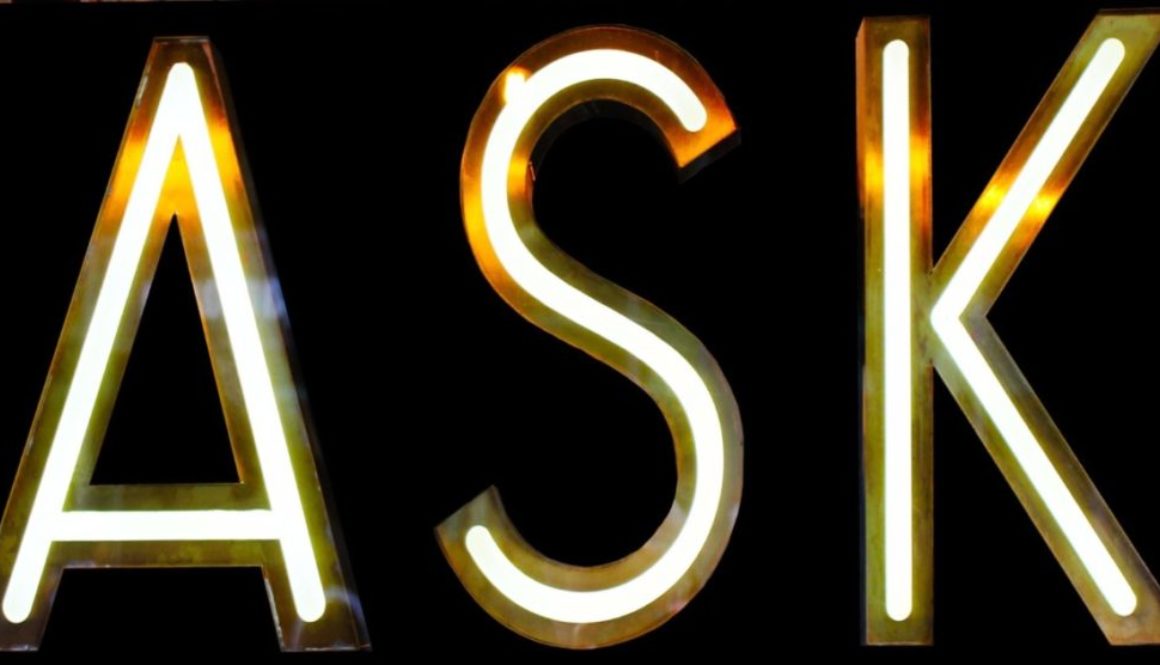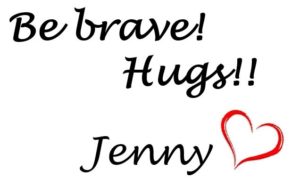Do you ask for help or are you afraid of being rejected?

“Why didn’t you just ask me? I could’ve helped you if only I’d known!” If your child, spouse or a friend turned to you and asked you for help – how would that make you feel? Wouldn’t you feel really good? Provided you had the time to help off course.
Asking for help has been something I’ve had to relearn as an adult. Why is it so hard to ask for help even when I know how good it feels to be able to help others?
Going from dependence to independence
A child goes through many phases during the first decade of growing up. One that keeps coming back, once a year or so, is the fight for independence; “I can do it myself!” “I know you can honey, but could you show me how you can tie your shoes another time and not right now that the buss is leaving???”
The need for independence is a strong urge for humans. I believe nature gave us the drive to learn and to become capable of taking care of ourselves to help us survive. We’re born completely dependent but we fight for our independence as soon as we can.
Yet we feel the best when we contribute, when we feel we are significant and when we’re connected to others by the acts giving and getting support – interdependence seems to be the level after independence.
Studies show that we’re wired for giving
In his research into influencing people, Robert Chialdini came across some core human drivers that correlates to the topic of dependence and interdependence – like the drive for helping. The study explains that it’s a human trait, endorsed by ancient tribe culture, to want to give as much or more than we receive. This is to ensure that we are perceived as a valuable member and will be safe within the tribe.
One example of this shows up is as an impulse to want to repay a perceived debt. There are scam artists that have put this knowledge into play. It’s done by giving a small insignificant gift, e.g. cleaning your windshield, and then asking for payment. I once was jumped by an old woman literally wrestling a string bracelet around my wrist and then getting super angry cursing me when I refused to pay for the assault.
I get really pissed at people who do such unasked for favors expecting me to pay them. The anger come as a reaction to feeling that I actually owe them something even though I practically fought against the “gift”. The anger comes even though my rational brain knows it shouldn’t. The wiring is instinctual.
That instinct, combined with the consensual act of giving, comes with a flood of positive feelings. It feels really great to do things for others. To give is to feel like you matter. To help someone you love makes you feel connected and significant.
So why is it so hard to ask?
I’ve always resisted the need for help, asking for help has actually left me feeling helpless and raw. Independence and being able to stand on my own has been huge. How could I rely on anyone else when I can’t trust them to do things “my way”. My fixed mindset have had me believing there IS a right way to do things.
And hey, the things I really need help with are either really messy emotional “help me manage my self-doubt and dark thoughts”-issues or practical “I really want this heavy furniture out of our living room”-urgent kinda issues.
So I usually feel uneasy asking for help. One part of the unease it that I risk being denied, rejected. Do you have a child that hates the word “no”? I mean more than just the normal disappointment in not getting what she/he asked for but that actually hates being rejected? I’m like that still – work in progress.
Another part of the unease comes from that “debt” that I feel building up towards the one I’ve asked for help. If I can’t do something for that person in turn then I’ll eventually feel like I’m leeching of that person. This results in it being way easier to ask for help from someone who asks me for help now and then.
I practice asking for help
I’ve realized that for people to ask me for help and letting me feel needed and valuable then I have to ask them for help as well. I have to open up my life and let people in so they know how to help me. I’m still learning. The journey, so far, has gone something like this:
1st step: Ask for help but make clear exactly how I wanted things done
2nd step: Resist until life kicked my ass and make it very obvious that I NEED help
3rd step: Ask for help only in the minor, not so important things, and not care about the how
4th step: Realize that I was still not feeling connected nor achieving the goals I’ve set out for my life
5th step: Ask for true help from a place of vulnerability
It’s not easy, I’m still walking the wilderness (ref. Brené Brown) with this issue. But the unease is worth it! The feeling of connection, as well as the actual help, and the sharing of gratitude warms my heart and leaves me feeling loved and safe.
Do you ask for help?
The actionable concept of this post would be amiss if it didn’t relate to asking for help.
- Write down a list of things you would really like to have solved in your life.
- Think of three people that you love and would really like to be able to help in some way.
- Choose one important thing from your list of things – that you need help with – for each person that you would like to help and go make that ask. Stay open and true – explain why you need the help and how much it would mean to you to get it.
Remember, most people live really busy lives and might not have time to schedule helping someone else right away. Don’t take it personally if you’re denied the help. What you’ve done, even by just asking, is open up the communication about helping and this will empower your relationship in the future.
